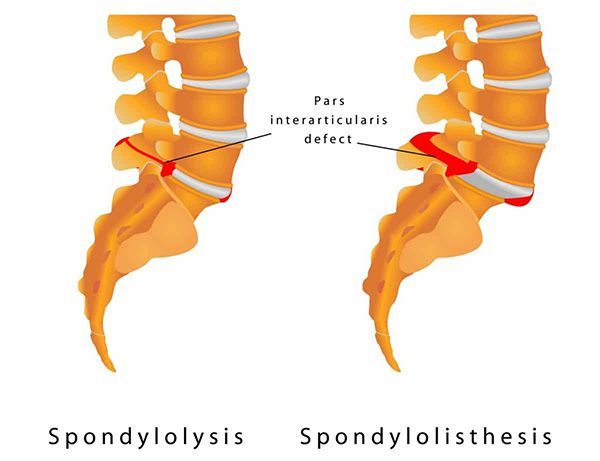Chiropractic Care for Seniors: Maintaining Mobility and Quality of Life

As we age, maintaining good mobility and quality of life becomes a top priority. While physical changes like joint stiffness, muscle weakness, and decreased flexibility are a natural part of the aging process, there are ways to manage these changes and maintain an active, fulfilling lifestyle. Chiropractic care for seniors can play a vital role in enhancing mobility, reducing pain, and improving overall well-being. In this blog post, we’ll explore the many benefits of chiropractic care for seniors and how it can help you age gracefully while maintaining your independence.
1. Understanding Chiropractic Care
Chiropractic care focuses on the relationship between the spine and the nervous system, emphasizing manual adjustments to the spine and joints to alleviate pain, improve mobility, and support overall health. Chiropractors are highly trained to diagnose and treat musculoskeletal conditions, particularly those involving the spine, joints, and soft tissues.
For seniors, chiropractic care is not just about alleviating pain; it's also about improving function, preserving mobility, and supporting the body’s natural ability to heal itself. Chiropractic adjustments are a safe, non-invasive way to promote spinal health, improve posture, and help manage the discomfort that often comes with aging.
2. The Aging Body: Common Challenges for Seniors
As we age, the body undergoes several natural changes that can impact mobility and quality of life. These changes often include:
- Decreased Flexibility: As muscles and connective tissues lose elasticity, seniors often experience joint stiffness and reduced range of motion. This can make simple tasks like bending, reaching, and walking more difficult.
- Osteoarthritis: This common condition involves the gradual breakdown of cartilage in the joints, leading to pain, swelling, and decreased function. It can affect various areas of the body, including the knees, hips, and spine.
- Postural Changes: Over time, poor posture habits can lead to misalignments in the spine, contributing to back pain, muscle tension, and limited mobility.
- Falls and Balance Issues: As the body’s balance system weakens with age, seniors are at higher risk of falls. Chiropractic adjustments can help improve balance and reduce the risk of falls by promoting proper spinal alignment and improving joint function.
3. How Chiropractic Care Benefits Seniors
Chiropractic care offers a variety of benefits for seniors looking to maintain mobility and quality of life. Below are some of the key advantages:
Pain Relief
One of the most common reasons seniors seek chiropractic care is to address chronic pain. Whether it’s back pain, neck pain, arthritis, or headaches, chiropractic adjustments can help alleviate discomfort by restoring proper alignment to the spine and joints. This helps to reduce pressure on nerves, improve circulation, and promote the body’s natural healing processes.
Improved Mobility and Flexibility
Chiropractic adjustments can improve joint mobility, helping seniors regain flexibility and increase their range of motion. This is especially beneficial for individuals suffering from arthritis or age-related stiffness. By restoring alignment and function to the joints, chiropractic care can reduce pain and improve overall movement, making it easier to perform daily activities and enjoy recreational pursuits.
Enhanced Posture
As we age, our posture tends to decline, leading to slumping, rounded shoulders, or forward head posture. This can result in back and neck pain, muscle fatigue, and limited mobility. Chiropractic adjustments help realign the spine and improve posture, reducing strain on the muscles and joints. Better posture can also increase energy levels and reduce discomfort, allowing seniors to feel more comfortable and confident in their daily lives.
Injury Prevention and Fall Risk Reduction
Chiropractic care can help improve balance, coordination, and overall physical function. This is especially important for seniors who may have an increased risk of falls. Through regular adjustments, chiropractic care helps keep the nervous system functioning optimally, enhancing balance and coordination. Additionally, chiropractic care can identify and treat musculoskeletal imbalances that may contribute to falls, such as hip misalignments or weakened muscles.
Stress Relief and Better Sleep
Chronic pain and tension can increase stress and make it difficult to get a good night’s rest. Chiropractic care can help reduce muscle tension and alleviate pain, leading to a greater sense of relaxation and reduced stress. By improving spinal alignment and supporting the body’s natural healing processes, chiropractic adjustments can promote better sleep and improve overall emotional well-being.
Support for Other Health Conditions
Chiropractors don’t just treat musculoskeletal issues. They can also help seniors manage a variety of other health conditions, such as:
- Headaches: Chiropractic adjustments can reduce the frequency and severity of tension headaches and migraines by improving spinal alignment and reducing muscle tension.
- Digestive Issues: Misalignments in the spine can affect nerve function, leading to digestive issues like constipation. Chiropractic care can help improve nerve communication, promoting healthy digestion.
- Sciatica: Many seniors experience sciatica, which is a sharp pain that radiates down the leg. Chiropractic adjustments can alleviate pressure on the sciatic nerve and reduce pain.
4. Safety and Considerations for Seniors
Chiropractic care is generally considered safe for seniors, but as with any medical treatment, it’s important to consider individual health conditions. Before beginning chiropractic care, seniors should consult with their primary care provider to ensure that chiropractic adjustments are appropriate for their specific needs.
Some seniors may have certain health conditions, such as osteoporosis, severe arthritis, or recent surgeries, that require modifications to their chiropractic treatment plan. Chiropractors are skilled at tailoring their techniques to accommodate these conditions and ensure that the care provided is safe and effective.
Additionally, seniors should choose a chiropractor who is experienced in working with older adults. A knowledgeable chiropractor will understand the unique needs and concerns of seniors and will be able to develop a treatment plan that supports their health goals.
5. The Importance of Regular Care
For seniors, chiropractic care is most effective when it is part of a regular maintenance routine. While one or two adjustments may provide temporary relief, regular visits to the chiropractor can help sustain improvements in mobility, pain levels, and overall health. Chiropractic care can complement other health practices such as physical therapy, exercise, and a healthy diet, allowing seniors to maintain an active and independent lifestyle for years to come.
Conclusion
Chiropractic care is an excellent option for seniors looking to maintain mobility, manage pain, and enhance their overall quality of life. With its emphasis on spinal health, mobility, and pain relief, chiropractic care can help seniors stay active, improve their posture, reduce the risk of falls, and support their overall well-being. By working closely with a chiropractor who understands the unique needs of older adults, seniors can enjoy greater mobility, independence, and vitality well into their golden years.
If you’re a senior looking to improve your mobility or address age-related discomfort, consider reaching out to a chiropractor to learn how chiropractic care can support your health and enhance your quality of life.
Bethany Wolcott
D’Youville Chiropractic ‘26












